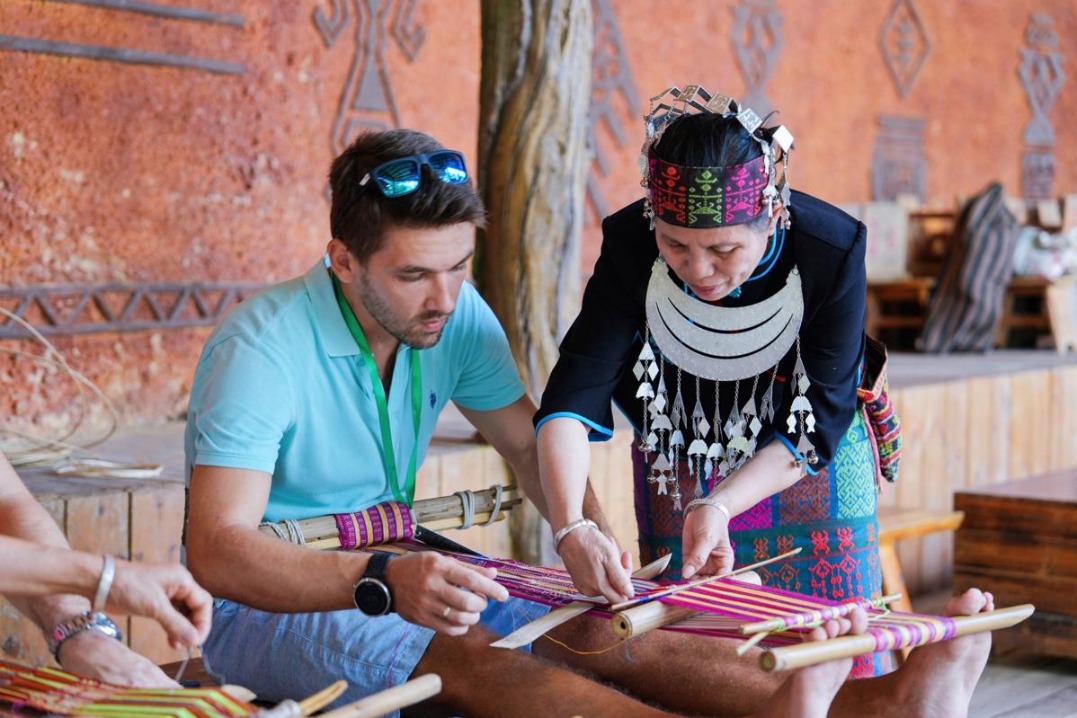Lessons for life
Schools in Sichuan take different and innovative approaches to provide greater opportunities to students from poverty-stricken areas of the province, Fang Aiqing reports.

Financial support, from various sectors, has greatly improved the educational infrastructure in Liangshan Yi autonomous prefecture, Sichuan province.
This area posed particular challenges and offered surprising remedies in China's battle against extreme poverty.
But it is one thing to reduce poverty, it is another to offer opportunity and ensure that young people have the necessary foundations for success in adult life.
It's long-term and intensive work that requires patience, insight and creativity, but the locals have got the ambition and resolve to endeavor and move forward.
It's the lessons of nature in particular that are of interest to pupils of the autonomous prefecture's Puge county.
"A hen protects its offspring regardless of the danger to herself," is how ethnic Yi pupil Jimu Yingming, in fifth grade at a primary school in Puge county, describes learning about maternal love during her observations of how hens hatch and nurture their young.
"When something or someone attempts to capture or hurt her little chicks, the hen will pounce, pecking away at the attacker," Yingming says.
When Yingming's senior schoolmates were working on the same topic, they found the hens had shown extraordinary perseverance and strength to hatch chicks, especially when one suffered from henpox-a disease that manifests as warts on or near the hen's head.
At one point, the henpox was so bad that it covered the hen's eyes and blinded it. The pupils treated it while keeping the hen inside the coop to help it continue hatching. Many others that had been infected, mainly roosters, didn't make it and died.
Since March, Yingming and her friends have spent around 20 minutes every day examining the hens.
They will write down what they see in a report for scientific competitions and the research has also become material they write up in Chinese language class.
The central primary school of Wudaojing township, Puge county, the one attended by Yingming, has introduced these projects on agriculture to improve pupils' knowledge and cultivate scientific thinking.
Two of their research papers, which respectively observed the formation of teeth in chickens and goats, won consecutive national awards in 2018 and 2019.
As a countryside school with limited funds, the school has to plant its own food, including vegetables, fungi and strawberries, as well as keeping the chickens, to earn extra money to cover expenditures.
These practices, which see the students fully participate, have become a source of inspiration to help students realize that science has a daily application, and they can find numerous interesting research topics in everyday life, says Zhang Xueqing, the teacher in charge of the project.
The students keep three kinds of chickens, including high-altitude varieties and silky fowl.
They will compare the economic efficiency in the breeding process and the markets available for the sale of different chickens as another research topic.
At the age of 13, Yingming, as the oldest among her five siblings, has to take care of her brother who is just a year old.
It's common for Yi families to have more than one child and, as they often get left behind by their parents who leave to find work, the older ones, together with their grandparents, share the responsibility of raising the younger children.
Goals for a better future
People in the Liangshan mountainous area in Southwest China know the importance of education in breaking the spiral of poverty.
It's hard for rural students to compete with their urban counterparts, who enjoy better educational resources and greater opportunities stemming from college entrance examination performances, job opportunities and social capabilities.
To cope with the situation, the prefecture is determined to provide its students with every chance to realize their potential.
Tiedaobing Hope School in Puge county is following a path of cultivating a football culture.
Many of the Yi students have to commute on foot, over many kilometers, and help with household chores or even farmwork. Living at an altitude of nearly 2,000 meters, they tend to have better physical strength, says Huang Dinghua, the deputy principal.
The school, with the best soccer pitch in the county, now has a squad of boys and another of girls, each with 20 members aged between 8 and 11 years old.
The boy's team managed to make it to the final eight in a prefecture tournament comprised of 20 teams last June, just three months after it was set up. It was the only village primary school team in the competition.
Last autumn the school recruited a professional soccer coach and teacher. When Jiaba Haier, 26, took over the job, he discovered that many pupils had barely touched, let alone kicked, a football.
He let them play in informal teams at first to allow them to be comfortable on the ball before teaching them how to dribble, tackle and pass.
He tells anecdotes of star players, of how sport helped him to get into university and further his career, and also about how soccer training and competitions will bring them opportunities to go out and see the world at large.
The teacher believes that once there is, no pun intended, a clear goal, it's easier for the pupils to follow their dreams.
Huang also points out that training gives them all a sense of identity, of purpose and a common target.
She also adds that many, who come from poverty-stricken families with migrant worker parents who live away from home, tend to stay longer on the premises after school, or are enrolled as boarders, which keeps them in a productive environment.
According to Huang, the pupils enjoy campus life more because of their interest in soccer, and this gives them a confidence boost that will spill over into other areas.
Zhang Qiquan, who was sent by Longmatan district from the city of Luzhou, Sichuan province, to help the county's poverty alleviation efforts and take charge of education development, says they are planning to invest further in order to set up more teams in different schools, build more venues and send more teachers out for training.
The county is also seeking to link up with external resources to help local soccer talent with further studies and a route to a possible professional career in the sport.
It was Zhang Qiquan's eight colleagues, also sent from Luzhou, who kicked off the soccer training at Tiedaobing school last March.
The coaches, who were amateurs, taught themselves in their spare time and then trained the pupils. They also brought teams to Luzhou for friendly matches.
Understanding education
Fu Ling, deputy principal of Fucheng primary school, Puge county, has set the goal for her remaining five years before retirement-cultivating teachers who are capable of positive psychological guidance.
More than half of the school's 4,200 students are children that have been left behind by their migrant worker parents, whose absence tends to result in the children lacking a sense of security and acting out in an aggressive way, she says.
She tells of a tall boy in sixth grade who was a bit of a bully. Instead of criticizing the behavior directly, she instead asked about his family. It turned out that his father had died when the boy was just 6 years old.
Attacking others first was both a way of seeking attention and ironically, self-defense, Fu inferred. However, she also found that the boy was more sensitive and observant than others. He's good at identifying others' needs and willing to help. With proper guidance, the boy has become much more considerate and the bullying behavior has stopped.
Fu mentions that some students, who appeared to be vulnerable and feeling inferior without their parents at their side, seemed uninterested on June 1, Children's Day, when celebrations were held and social organizations came to distribute goody bags and fruits as gifts.
"Children are all cute and smart. Their differences are caused by family, society and historical and cultural backgrounds," Fu says, adding that what Yi children lack most is family education, or more precisely, company.
To help Yi students keep up with the class and fit into multiethnic campus life, the autonomous prefecture has set up more than 3,000 village kindergartens that teach Mandarin.
Just one year of learning the language has enabled Muchu Erzi, 6, to sing Twinkle, Twinkle, Little Star in Mandarin in front of a large group of strangers, many of whom were taking photographs. Before, she spoke only in the Yi language and barely knew any Mandarin phrases.
Wang Jian, Erzi's kindergarten teacher at the Gaduo village, Yuexi county, keeps encouraging the girl to raise her voice and be confident.
"She's not our best Mandarin speaker, but she has made the most progress," Wang says.
Frequently when school was over, she asked Erzi a lot of idle questions on purpose to help the girl practice more.
According to Wang, all 56 children aged between 3 and 6 have been enrolled in the village kindergarten. At first, the children were too shy to even talk with her.
She hopes that one day they will be bold enough to greet people, start a conversation and confidently express what they think and need.
Zhang Qiquan recalls that, initially, he was pained to see boys and girls barely wash their hands and faces and lack a proper sense of personal hygiene.
Through external funding, Puge county was able to equip its schools with 14 water dispensers, build up seven campus shower rooms and improve canteen meals to guarantee clean drinking water, hot showers and balanced diets for students.
Teachers also play a crucial role outside the classroom. Personal hygiene is an issue that the teachers and students work on together, according to Hu Zhenghua, principal of the Wudaojing township school. It is a priority, he says, for this area to be fully covered, especially because there are students who are entering a sensitive time in their lives as they approach puberty.
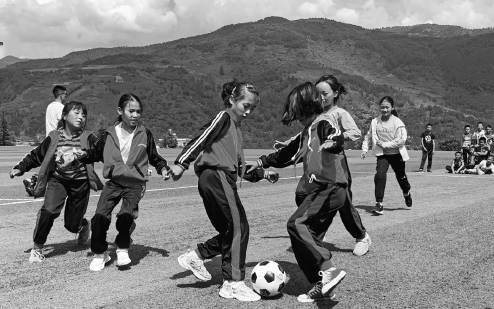
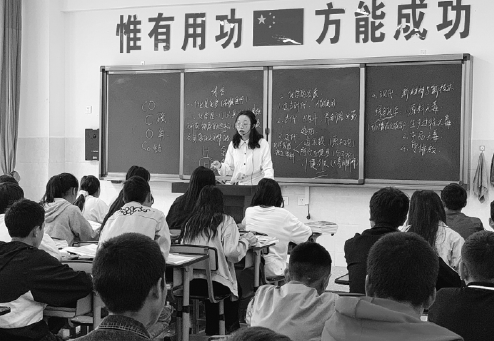
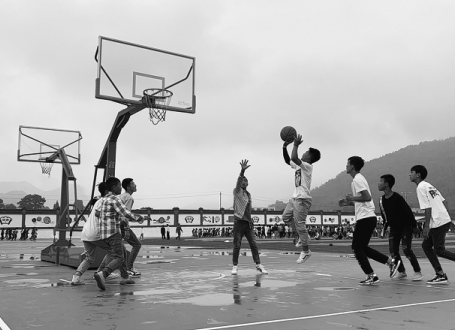
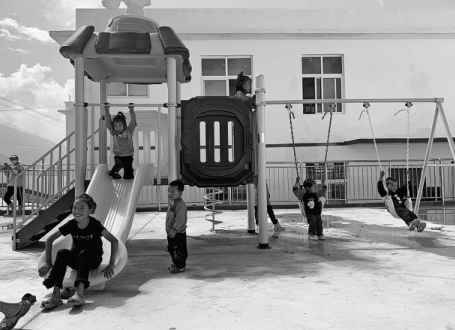
Today's Top News
- China-US officials hold economic talks
- Ensuring safety and transparency in 'pre-made' food
- Forum seeks fairer, more rational global order
- China, Canada vow to steer ties on track of development
- Hit TV series sparks wave of remembrance, patriotism
- Cities get new lease on life



















